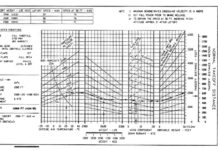Flying in air shows is considered a commercial operation and, therefore, requires a minimum of an FAA Class II medical. But how many air show performers have looked at Part 67 since taking their original written exam?
Part 67, in conjunction with Part 61.53, is unique in that it gives pilots the authority and responsibility to ground themselves when they can no longer meet the standards of their medical certificates.
Think about that. The FAA has said that a layman can and should practice medicine. The FAA says that pilots should assess themselves to determine if their own health or physical condition should stop them from flying. That’s a lot of responsibility.
Heart attacks, broken limbs, and cancer are comparatively easy. But what about the not-so-easy parts? Air show pilots travel extensively and sometimes keep odd/long hours, making them susceptible to colds, sniffles and the like. Not to mention allergies and minor aches and pains. Everybody knows that there are easy fixes: over-the-counter medications (OTCs).
There are two problems here. The first is common sense. If you’re not feeling well, you’re not going to perform at the top of your game. In a business of close tolerances, even minor health problems could present a safety hazard. And, of course, a blocked sinus or ear infection can lead to serious medical issues, several doctor visits, and long-term grounding.
The second is legal. Remember that pilots have a “responsibility” to ground themselves. If you didn’t and have a subsequent incident or accident, the state of your health will become an issue. Prescribed or OTC pharmaceuticals will be identified through blood or urine samples. It may be determined that you should have grounded yourself which could lead to regulatory enforcement or even the voiding of your insurance. (Read the fine print; if you weren’t legal, they may not pay.)
Be careful how you approach this issue. It’s easy to dismiss concerns about OTCs as being overly cautious. But you may inadvertently create a problem for yourself if you are not attentive. Some cough syrups, for example, contain codeine. Codeine shows up on a DOT blood or urine test as a narcotic.
Several websites, including www.faa.gov, will help you determine what drugs are legal and which aren’t. But here’s a simple test: if the label says “don’t operate heavy machinery,” that includes airplanes. If it says “may cause drowsiness,” don’t fly while using it. And remember that not all medication are approved even if they are labeled “non-sedating.” For instance, Claritin is OK, but Zyrtec is not. 72 hours from your last self-medicated dose should see you free and clear of any residual chemicals. When in doubt, ask your AME.








